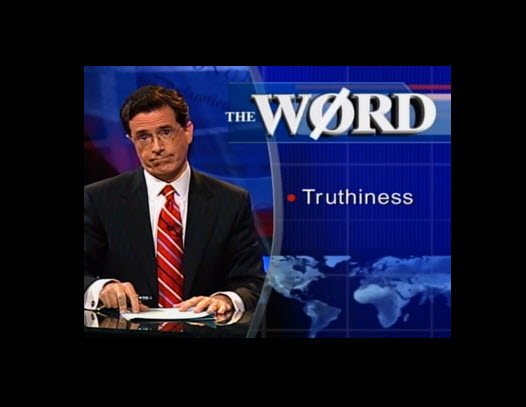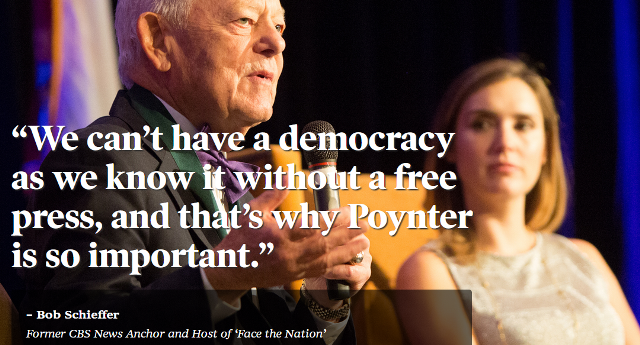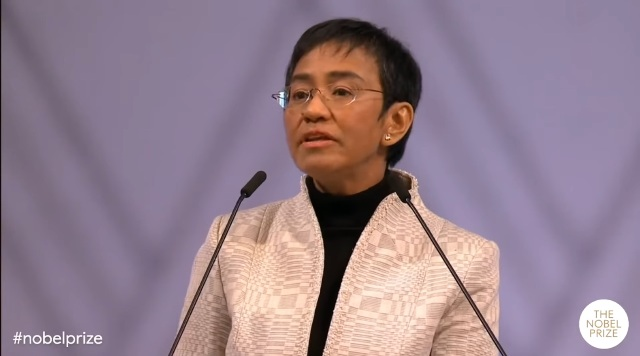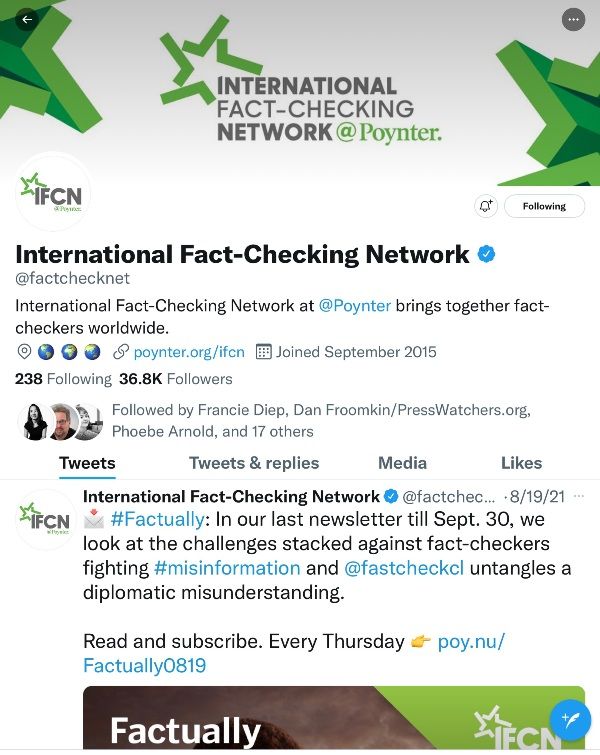Fact Checking, Facts Count: Difference between revisions
Siterunner (talk | contribs) No edit summary |
Siterunner (talk | contribs) No edit summary |
||
| Line 10: | Line 10: | ||
GreenPolicy360 continues a multi-year defense of facts, science, & 'critical thinking skills' | GreenPolicy360 continues a multi-year defense of facts, science, & 'critical thinking skills' | ||
"In Democracy, 'Facts Count'" | |||
Revision as of 17:17, 29 June 2024
Stephen Colbert explains "Truthiness"
Wikipedia adds a 'Truthiness' defintion of the modern term -- https://en.wikipedia.org/wiki/Truthiness
The concept of truthiness has emerged as a major subject of discussion surrounding U.S. politics during the late 20th and early 21st centuries because of the perception among some observers of a rise in propaganda and a growing hostility toward factual reporting and fact-based discussion.
GreenPolicy360 continues a multi-year defense of facts, science, & 'critical thinking skills'
"In Democracy, 'Facts Count'"
Populism is a major threat to democracy, political scientist Steven Levitsky warns
An independent press is critical to sustaining democracy, says the Harvard professor
Hundreds of fact-checkers from around the world attended the Poynter Institute's International Fact-Checking Network GlobalFact 11 Summit
June 28, 2024
SARAJEVO, Bosnia and Herzegovina – Though democracies have demonstrated surprising resilience in recent decades, populism has emerged as a major threat, Harvard government professor Steven Levitsky warned fact-checkers
Populist candidates are winning elections today much more frequently than at any other time in history, Levitsky told attendees at GlobalFact 11, an annual fact-checking conference by Poynter’s International Fact-Checking Network held this year in Sarajevo. One of the reasons populism is on the rise is because political establishments — which include political parties, large interest groups and major traditional media outlets — are weakening. Populists no longer need the resources provided by political establishments to run for office.
Establishments do not act as a single entity, Levitsky said. “But collectively, political establishments do tend to impose certain parameters on politics, both in terms of political style and in terms of policy substance.”
The weakening of political establishments is “unquestionably” democratized as it opens up the political system to a wider array of people, said Levitsky, who was interviewed by IFCN director Angie Drobnic Holan. But it also means that democratic institutions are left vulnerable to anti-system forces.
Though populism is not inherently anti-democratic, recently elected populists such as former U.S. President Donald Trump have been more likely to threaten democratic institutions.
Still, Levitsky said, there is hope. There are as many democracies today as there were in the early 2000s despite an overall deterioration in the conditions for such institutions.
In the 1990s, democratic governing systems seemed to be on the verge of becoming ubiquitous. Between 1975 and 2000, the number of democratic countries nearly tripled. But in recent decades, the rise of China and Russia have threatened a geopolitical balance of power dominated by Western democracies.
“Western democracies… face growing illiberal threats from within,” Levitsky said. “Western governments across the West — Europe, the United States — have lost both the will and the capacity to effectively promote democracy abroad.”
And yet the overall number of democracies in the world remains relatively steady, Levitsky said. Democratic declines and “backsliding” in some countries have been offset by democratic advances in others.
“The world is still considerably more democratic than it was in the 1990s despite the rise of China, despite (Russian President Vladimir) Putin, despite Trump, despite social media, despite AI, despite COVID,” Levitsky said. “To me, that suggests a fair amount of democratic resilience.”
One reason for this resilience is that many new autocracies are fragile and prone to failure. They often inherit weak states and thus fail to deliver public services to their citizens. That then breeds dissent, which they struggle to repress, Levitsky said.
The other reason democracies have generally been resilient is economic development. When resources are dispersed among the people instead of being controlled by the government, it is easier for people to support opposition movements. They no longer have to depend on the government for their livelihood.
“Democracy absolutely requires opposition,” Levitsky said. “If there’s one thing that sustains democracy, it’s opposition, and sustainable opposition requires two things: It requires autonomous citizens, and it requires an independent private sector.”
An independent press also plays a critical role in sustaining opposition, Levitsky said. People cannot oppose a government without information.
“We’ve yet in any Western society to discover a means of providing independent sources of information to citizens without independent media,” Levitsky said. “So without an independent, self-sustaining media, it is impossible to guarantee citizens the information they need to oppose the government.”
~
Global Fact, the Eleventh Global Fact-Checking Summit
June 2024
Presented in Sarajevo by the International Fact-Checking Network (IFCN) of the Poynter Institute in partnership with Zašto ne, the GlobalFact 11th annual gathering of news organizations, media, educators, writers and journalists June 26-28, 2024) empowers fact-checkers to uphold the industry’s highest standards of excellence through discussions, training and networking events with globally renowned fact-checking experts.
What is GlobalFact?
GlobalFact is the world’s largest and most impactful annual summit for professional fact-checking.
Fact-checkers and supporters of fact-checking discuss industry-wide challenges, exchange best practices and build collaborative solutions to improve our shared information ecosystem.
~
Facts Count
A 'Facts Count Project' of GreenPolicy360.com & StrategicDemands.com
The GreenPolicy360 eOS Network
- St. Petersburg / Clearwater, Florida
- Tens of Millions of Visits, Interactions & Shares
Fact Checking, Facts Count
- Facts are a highest priority @GreenPolicy360 & Strategic Demands
Looking at the launch and growth of fact-checking organizations
- From Poynter Institute, Florida to Cities, States and Nationa of the World
- The time is now with the advent of the Internet to refresh the importance of truth telling
- https://www.greenpolicy360.net/w/Fact_Checking | Fact Checking @GreenPolicy360
- https://reporterslab.org/fact-checkers-extend-their-global-reach-with-391-outlets-but-growth-has-slowed/ | 100+ Countries-391 Fact-Checking Sites (2022)
- https://reporterslab.org/update-237-fact-checkers-in-nearly-80-countries-and-counting/ | 80 Countries-237 Fact-Checking Sites (2020)
- https://reporterslab.org/number-of-fact-checking-outlets-surges-to-188-in-more-than-60-countries/ | 60 Countries-188 Fact-Checking Sites (2019)
- http://reporterslab.org/global-fact-checking-up-50-percent/ | 37 Countries-96 Fact-Checking Sites (2016)
- https://www.poynter.org/mediawise/ | MediaWise for Teens
- http://www.politifact.com/ | PolitiFact via Poynter
- https://www.poynter.org/ifcn/ | Poynter Int'l Fact Checking Network
- http://www.poynter.org/category/fact-checking/ | Poynter Int'l List
- https://reporterslab.org/fact-checking/ | Reporters Lab Fact-Checking News
Maria Ressa, Nobel Peace Prize Winner, to speak at the 2024 Global Fact-Checking Summit
Facts in a Connected, Internet-Era
Rising up against a barrage of online false, misleading claims
Information volleys, viral conspiracies, the 'dark web' become frontlines in a political war
2021
So please, with me, just close your eyes for just a moment, and imagine the world as it should be. A world of peace, trust, and empathy, bringing out the best that we can be.
Open your eyes. Now go, we have to make it happen. Please, let’s hold the line together. Thank you.
🌎
Democracy at Risk
A Year Reviewing Fact Checking Around the World
🌏
Search / 'Fact Checking' at GreenPolicy360
- Additional Website Resources - Linked Data - Green Best Practices
- Citizen Science
- Climate Change
- Climate Policy
- Democracy
- Digital Citizen
- Digital Rights
- Earth
- Eco-nomics
- EOS eco Operating System
- Earth360
- EarthPOV
- Earth Observations
- Earth Science
- Earth Science from Space
- Earth System Science
- Ecology Studies
- Energy
- Environmental Full-cost Accounting
- Environmental Laws
- Environmental Protection
- Environmental Security
- Environmental Security, National Security
- ESA
- Externalities
- Food
- Global Security
- Global Warming
- Green Best Practices
- GreenPolicy360
- Green Networking
- Green Politics
- Health
- Maps
- Media
- Money in Politics
- NASA
- Networking
- New Definitions of National Security
- NOAA
- Planet Citizen
- Planet Scientist
- Planet Citizens
- Planet Citizens, Planet Scientists
- Resilience
- Strategic Demands
- Sustainability
- Sustainability Policies
- ThinBlueLayer
- Threat Multiplier
- World Wide Web




